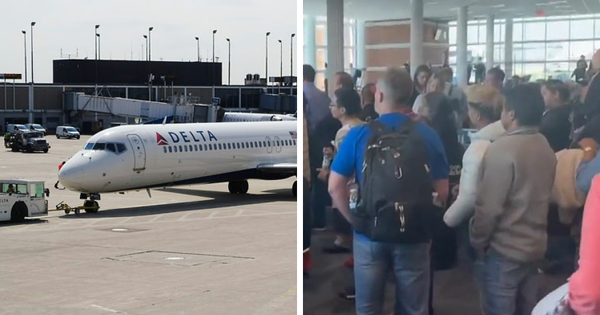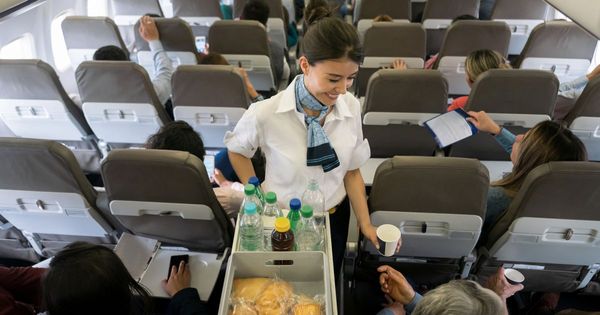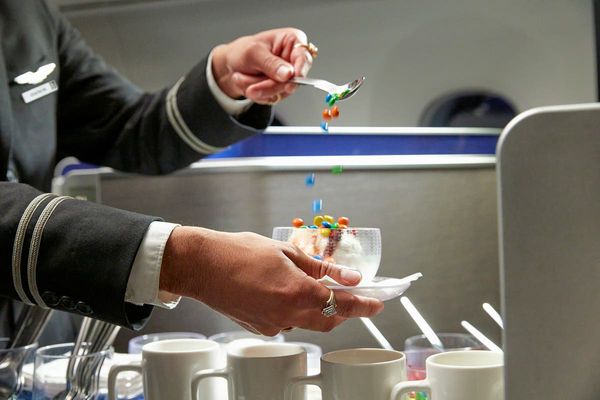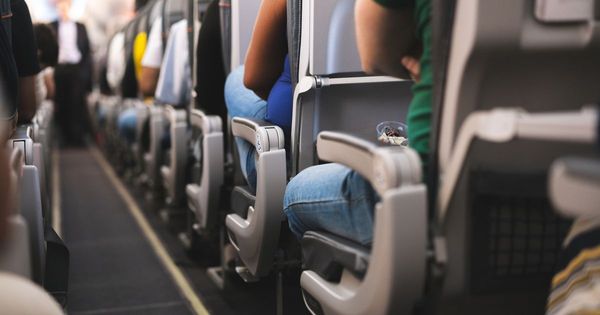
An airline has advised its customers to opt out of having an inflight meal, saying it is the “ethical choice”.
Japan Airlines (JAL) has been trialling the “JAL Ethical Choice MealSkip Option”, which enables passengers to pass on a meal service on certain flights, since 2020.
The carrier is now making it a permanent option on flight bookings worldwide, emphasising the sustainability benefits of avoiding a mid-flight lunch.
In emails to passengers, Japan Airlines wrote: “We would like to introduce to you a new service ‘JAL Ethical Choice MealSkip Option’, where you can cancel your meals during reservation to enjoy your sleep throughout the flight.”
Available in all cabins, the option needs to be registered 25 hours or more before your flight time.
It advises on its website: “Before departure, visit [the] JAL website and select ‘No Meal’.
“Please use this service if you would like to take a good rest on the plane or if you would like to help us reduce food waste.”
According to the International Air Transport Association (Iata), passenger flights generate approximately six million tonnes of waste per year, with 20 per cent caused by unconsumed food and drink.
For every person who selects the “skip meal” option, JAL says it will also donate “a certain amount” to the TFT Secretariat, which it says “will be used for school meal programmes for children in developing countries.”
London-based customer Wayne Kwong posted a screenshot of an email the airline had sent flagging the initiative, saying: “An interesting concept for charity, but I cannot see planefood lovers opting for it.”
Meanwhile, one Canada-based Twitter user replied saying: “It would also be ethical to lower the fare should you opt for this no?”
The concept was first trialled on the airline’s nearly six-hour overnight flight between Bangkok and Tokyo’s Haneda Airport, when it transpired that many customers would rather snooze than be disturbed for a free meal.
In a statement published in December, JAL said: “In order to pass on a prosperous planet to the next generation, the JAL Group is committed to making every flight sustainable and transforming air travel into a value to be proud of, by aiming to achieve zero CO2 emissions by 2050.
“As part of this, we will further expand our various inflight meal initiatives to achieve SDGs.
“This service, which helps reduce food waste while allowing passengers to rest comfortably in the cabin, and has been well received by customers, especially those who board late-night flights, who say they are glad to be able to take a good night’s rest.”
Various airlines have tried to combat inflight cabin waste in recent years: in November, Delta Air Lines added a “skip” option to its flight meal requests form for business class passengers to “help reduce food waste”.
Meanwhile, Air New Zealand has trialled plastic-free serviceware including edible coffee cups, and Finnair last year announced it had halved single-use plastic on its flights between spring 2018 and August 2022.










